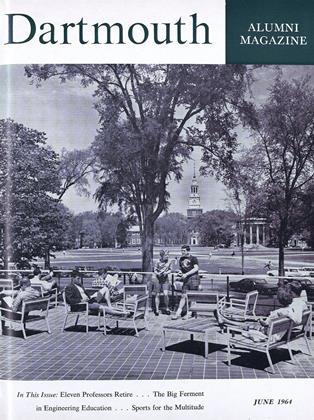Desiderius Erasmus of Rotterdam. Translated by Donald B. King '35 and H. DavidRix. Milwaukee: Marquette UniversityPress, 1963. 111 pp.
This edition of the de copia of Erasmus, the twelfth in a series of translations of Mediaeval Philosophical Texts, makes available to a wider public an important educational treatise of the Renaissance. In the Introduction the authors relate the work to the life and writings of Erasmus, analyze the text itself, and demonstrate the classical precedents, especially Quintilian Book X. In addition to citing T. W. Baldwin, Win.Shakespeare's Small Latin and Lesse Greek on the influence of the de copia on the school curriculum of Shakespeare's age, the authors' history of the text (85 printings in the life of Erasmus, 150 printings in the 16th Century, digests, summaries, and commentaries of schoolmasters) gives some tangible indication of the all-pervasive interest of the time not only in this work in particular but also in the problem of style in general.
Mr. King defines copia as follows:"... the word is used by Erasmus to denote not only the faculty of varying, but also varying itself. Indeed, as used by Erasmus, copia encompasses within its meaning the meaning of four English words: variation, abundance or richness, eloquence, and the ability to vary or enrich language and thought." In Book I, "On Copia of Words," Erasmus enumerates and comments upon twenty methods of variation; in Chapter 33 he practices his principles by giving 150 variations of the Latin sentence, "Tuae literae me magnopere delectarunt" (Your letter has delighted me very much). Modern readers might wish that he had treated a sentence such as "I should have written sooner, but...
In Book II, "On Copia of Thought," Erasmus examines eleven methods of amplifying thought in the course of which he gives ample quotations from ancient literature as well as several epideictic pieces of his own. Erasmus' citing of quotations without acknowledgment of authorship would never qualify under the Dartmouth handbook, Sources: Their Use and Acknowledgment, but the practice of plagiarism in antiquity and later times was not considered theft but as a compliment to the author. Further there was less interest in the concept of originality but more regard for style, the manner in which a subject was expressed.
For the student of rhetoric the indices both of chapters and headings as well as that of English, Latin, and Greek figures should be of use. Personally this reviewer regrets that the translation was not published with a facing Latin text so that all exempla as well as precise terminology might be checked. As stated in the Introduction, Professor King was responsible for the translation while his co-author undertook the bibliographical work and collation of the text.
Assistant Professor of Classics
 View Full Issue
View Full Issue
More From This Issue
-
 Feature
FeatureThe Big Ferment in Engineering Education
June 1964 By DAVID ALLISON, -
 Feature
FeatureA Teacher's Real Reward
June 1964 -
 Feature
FeatureSports for the Multitude
June 1964 By LARRY GEIGER '66 -
 Article
ArticleTHE UNDERGRADUATE CHAIR
June 1964 By DAVE BOLDT '63 -
 Class Notes
Class Notes1920
June 1964 By CHARLES F. MCGOUGHRAN, JHON S. MAYER -
 Class Notes
Class Notes1930
June 1964 By WALLACE BLAKEY, ARTHUR M. BROWNING
Books
-
 Books
BooksTHE LUSTY TEXANS OF DALLAS
March 1951 By ALLEN R. FOLEY '20 -
 Books
BooksAN INTRODUCTION TO PLANT LIFE
October 1935 By George M. Robertson -
 Books
BooksALL THE BEST IN THE SOUTH PACIFIC.
June 1961 By JOHN HURD '21 -
 Books
BooksBITTERSWEET: COLLECTED VERSE.
JANUARY 1967 By JOHN HURD '21 -
 Books
BooksTREATISE ON SURGICAL INFECTIONS
February 1949 By Rolf C. Syvertsen '18. -
 Books
BooksMODERN SMALL INDUSTRY FOR DEVELOPING COUNTRIES.
DECEMBER 1966 By WAYNE G. BROEHL JR.



